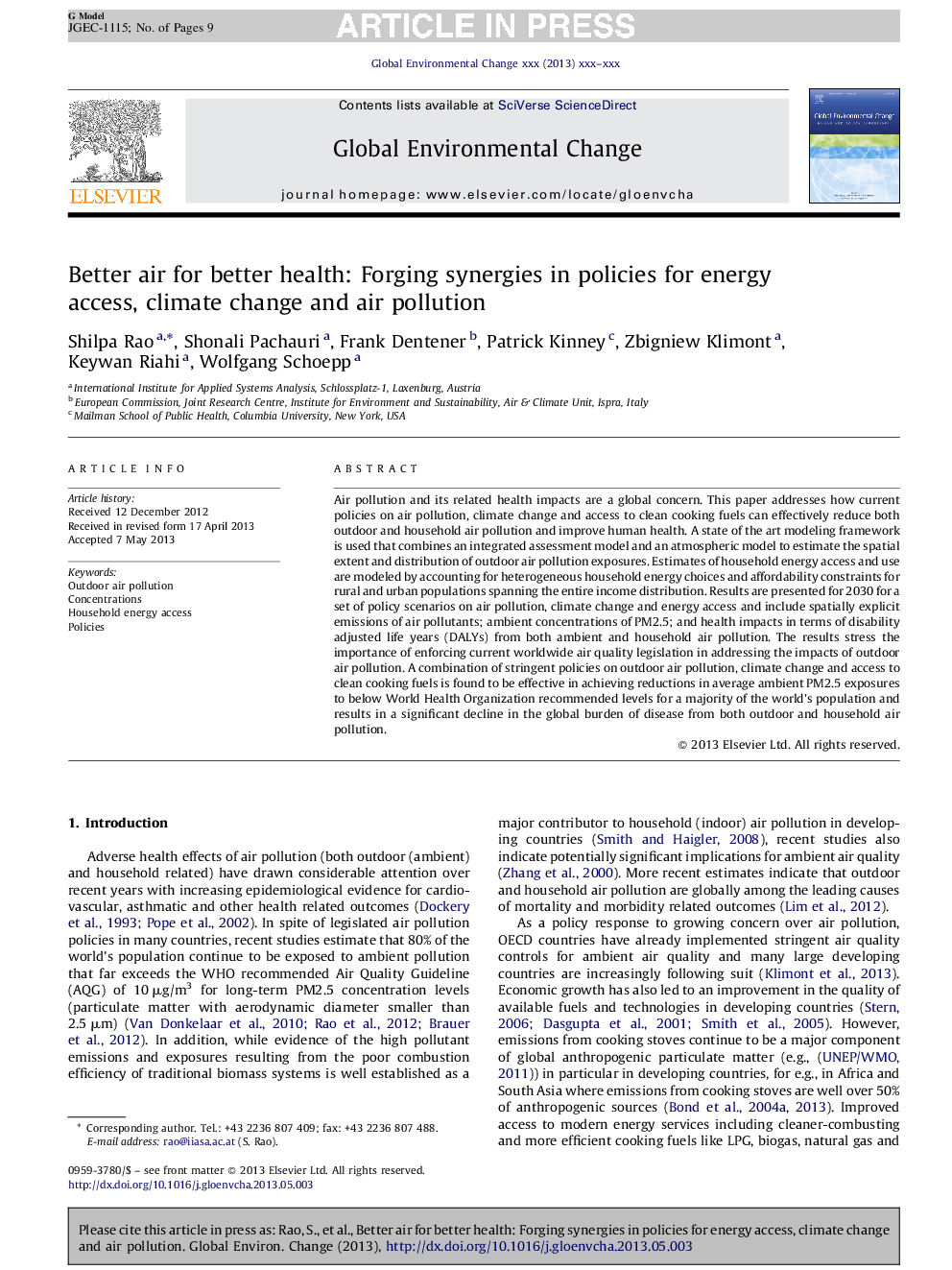| Article ID | Journal | Published Year | Pages | File Type |
|---|---|---|---|---|
| 10505103 | Global Environmental Change | 2013 | 9 Pages |
Abstract
Air pollution and its related health impacts are a global concern. This paper addresses how current policies on air pollution, climate change and access to clean cooking fuels can effectively reduce both outdoor and household air pollution and improve human health. A state of the art modeling framework is used that combines an integrated assessment model and an atmospheric model to estimate the spatial extent and distribution of outdoor air pollution exposures. Estimates of household energy access and use are modeled by accounting for heterogeneous household energy choices and affordability constraints for rural and urban populations spanning the entire income distribution. Results are presented for 2030 for a set of policy scenarios on air pollution, climate change and energy access and include spatially explicit emissions of air pollutants; ambient concentrations of PM2.5; and health impacts in terms of disability adjusted life years (DALYs) from both ambient and household air pollution. The results stress the importance of enforcing current worldwide air quality legislation in addressing the impacts of outdoor air pollution. A combination of stringent policies on outdoor air pollution, climate change and access to clean cooking fuels is found to be effective in achieving reductions in average ambient PM2.5 exposures to below World Health Organization recommended levels for a majority of the world's population and results in a significant decline in the global burden of disease from both outdoor and household air pollution.
Related Topics
Life Sciences
Environmental Science
Environmental Science (General)
Authors
Shilpa Rao, Shonali Pachauri, Frank Dentener, Patrick Kinney, Zbigniew Klimont, Keywan Riahi, Wolfgang Schoepp,
